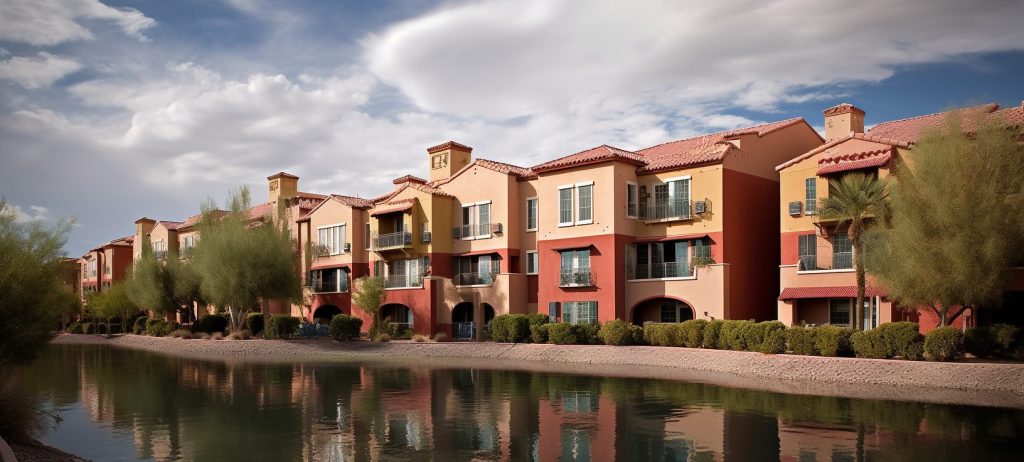Ancillary Probate Lawyers for Nevada
Meet Your Ancillary Probate Attorneys
First things first: Nevada doesn’t have a true ancillary probate process. The state requires the same probate process as if the decedent were a Nevada native. Our ancillary probate lawyers can help get you through the Nevada probate process with speed and clarity.
While the main probate process happens in the deceased person’s home state, Nevada requires a separate probate proceeding for any property located within our state borders.
At Clear Counsel Law Group, our experienced probate attorneys help families handle these complex multi-state situations. We guide executors and administrators through Nevada’s probate requirements while working alongside lawyers handling the primary probate in other states. Our team ensures your loved one’s Nevada property transfers smoothly to the rightful heirs or beneficiaries according to state law.

What is Ancillary Probate?
Ancillary probate is an additional probate process that’s initiated where the deceased owned real estate or tangible personal property outside of the state in which they lived. Simply put, if the main probate process (domiciliary probate) happens in the state where the deceased lived, any other state where they owned assets might require its own separate probate procedure. A probate attorney is skilled in handling this sometimes confusing process.

Why is it Necessary?
Every state has the authority to govern the distribution of property within its borders. So, even if a will or trust has been admitted to probate and validated in one state, other states where the decedent owned property will want to ensure that property transfers align with those laws and regulations.
Here’s an example of when ancillary probate is needed.
Jane, a lifelong resident of Las Vegas, Nevada, owned a vacation home in California. When she passed away, her will, which was executed in Nevada, detailed how her assets should be distributed, including the California property. While her primary probate proceedings took place in Nevada and handled her main estate, an ancillary probate process was necessary in California for the vacation home. Without this separate process, the legal transfer of the California property to her beneficiaries, as stipulated in her will, would not be recognized under California state law. Thus, the ancillary probate in California ensured the property was properly transferred.
If the situation were reversed, things would be different. Why? Nevada doesn’t do ancillary probate.
Nevada requires the same probate process as if the decedent were a Nevada native. So, Jane, now a resident of California with a vacation property in Las Vegas, would need to file for probate in California then again in Nevada.

Common Steps in Ancillary Probate:
Every state has its own unique rules as to how to handle the ancillary probate process. So the following steps are just one possible example of what you might have to do to complete probate. For your own unique situation, contact an attorney licensed in the state where you need help.
- Initiate Domiciliary Probate: Before you can start ancillary probate, you typically need to begin the primary probate process in the state where the deceased lived.
- Hire Local Counsel: Given that each state has its unique probate regulations, it’s advisable to hire a probate attorney in the state where the ancillary probate will occur to help guide the process and handle legal specifics.
- File a Petition: Just like the primary probate process, ancillary probate starts by filing a petition in the local court of the state where the additional property is located.
- Provide Necessary Documents: Generally, you’ll need to provide a validated copy of the domiciliary probate proceedings and sometimes a copy of the will or trust (if they exist).
- Notice to Creditors: The state will require that creditors be given notice of the ancillary probate process, allowing them an opportunity to present any claims against the out-of-state property.
- Settlement of Debts and Distribution: Just as in the primary probate process, debts and taxes associated with the out-of-state property must be settled before assets can be distributed according to the will, trust, or state intestacy laws.
- Close the Ancillary Probate: Once all debts are settled and assets distributed, the ancillary probate process can be formally closed in court.
Ancillary probate can feel like a daunting additional step, especially during a period of grieving. But understanding the steps involved helps make the process smoother. If faced with this situation, securing experienced local Nevada probate attorneys at Clear Counsel Law Group can be invaluable in navigating the complexities and ensuring that all property matters in Nevada are settled appropriately.